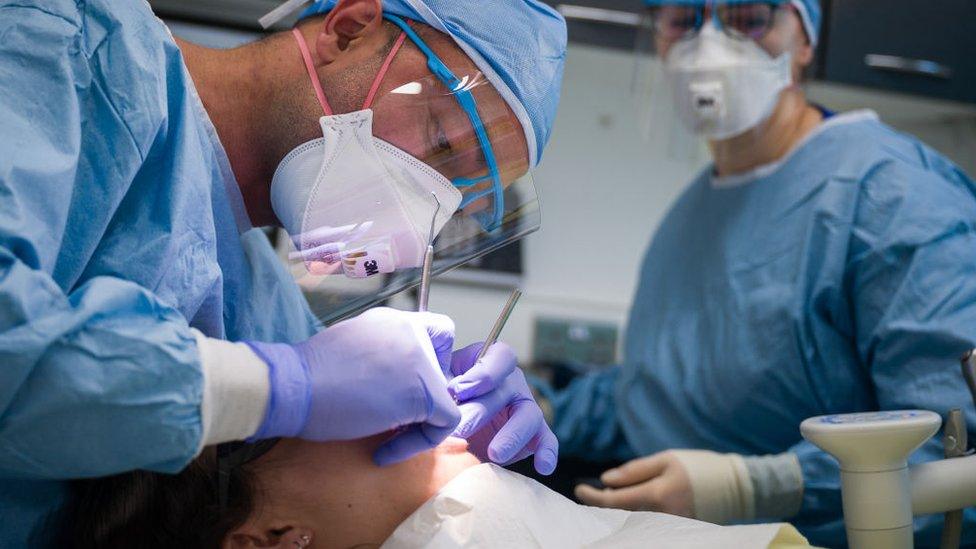NHS dentist shortages to be tackled with cash incentive
- Published
- comments
Watch: Health secretary asked if dental budget lower than it was
Dentists who set up practice in areas of England with poor access to NHS care will be offered a £20,000 bonus.
The government has also announced higher payments for dentists who take on new patients and teeth-cleaning in schools as part of a plan to expand levels of dental care.
The plans have been criticised as not going far enough by dental leaders and Labour.
The British Dentistry Association said this is "rearranging the deckchairs".
The £20,000 "golden hello" payment will be available to up to 240 dentists, about 1% of the workforce, with the aim of getting more people to work for three years in the so-called dental deserts where there is the poorest access to NHS care.
And the government hopes increasing the standard payments all dentists get for carrying out NHS work will tempt more away from the more lucrative private market.
Dentists have argued the money they are paid by the government to provide NHS dental care is not enough to cover their costs, especially in cases where people need complex procedures.
'Burning issue'
Health Secretary Victoria Atkins told the BBC the government has listened to the profession by increasing the standard payments for NHS work.
"I know how hard it can be to secure an NHS dental appointment."
The government is aiming for 1.5 million more treatments to be given over the next 12 months because of the plans.
British Dental Association (BDA) leader Shawn Charlwood said: "This 'recovery plan' is not worthy of the title. It won't halt the exodus from the workforce or offer hope to millions struggling to access care.
"Nothing here makes this service fit for the future. The crisis will remain a burning issue in communities across this country until we get real change."
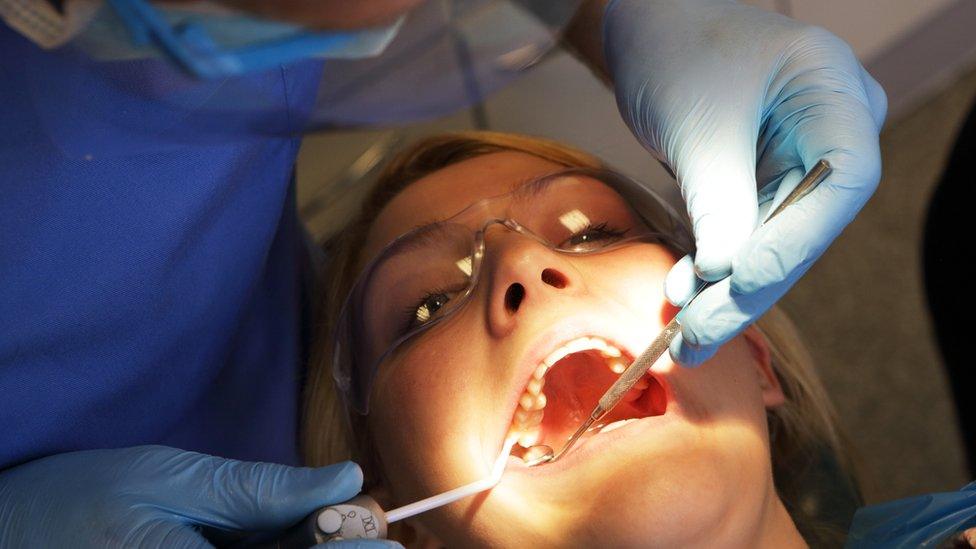
The measures announced by the government include:
An extra £15 for dentists on top of the standard payment of £28 for seeing a patient who has not visited a dentist for two years
An increase of up to £50 per patient needing complex work
Dental teams visiting schools and nurseries to provide fluoride varnish treatments and supported teeth-brushing
Mobile dental services in rural and coastal areas with poor dental coverage
Expansion of water fluoridation to new parts of the country to help prevent tooth decay
To support the proposal, an extra £200m will be invested on top of the £3bn currently spent each year.
However, the BDA said spending on dentistry had dropped by £1bn since 2010 once inflation was taken into account.

Have you been trying to find an NHS dentist?
WhatsApp: +44 7756 165803, external
Post on X: @BBC_HaveYourSay, external
Please read our terms & conditions and privacy policy

Stephen Davies, 67, from Lancashire, is one of many people who has struggled to access NHS dentistry.
He says he has had to resort to emergency dental work to have teeth extractions.
"Where I live there are people walking around with no teeth. I notice it amongst my friends. There's a whole generation of people with no teeth because they can't get a dentist."
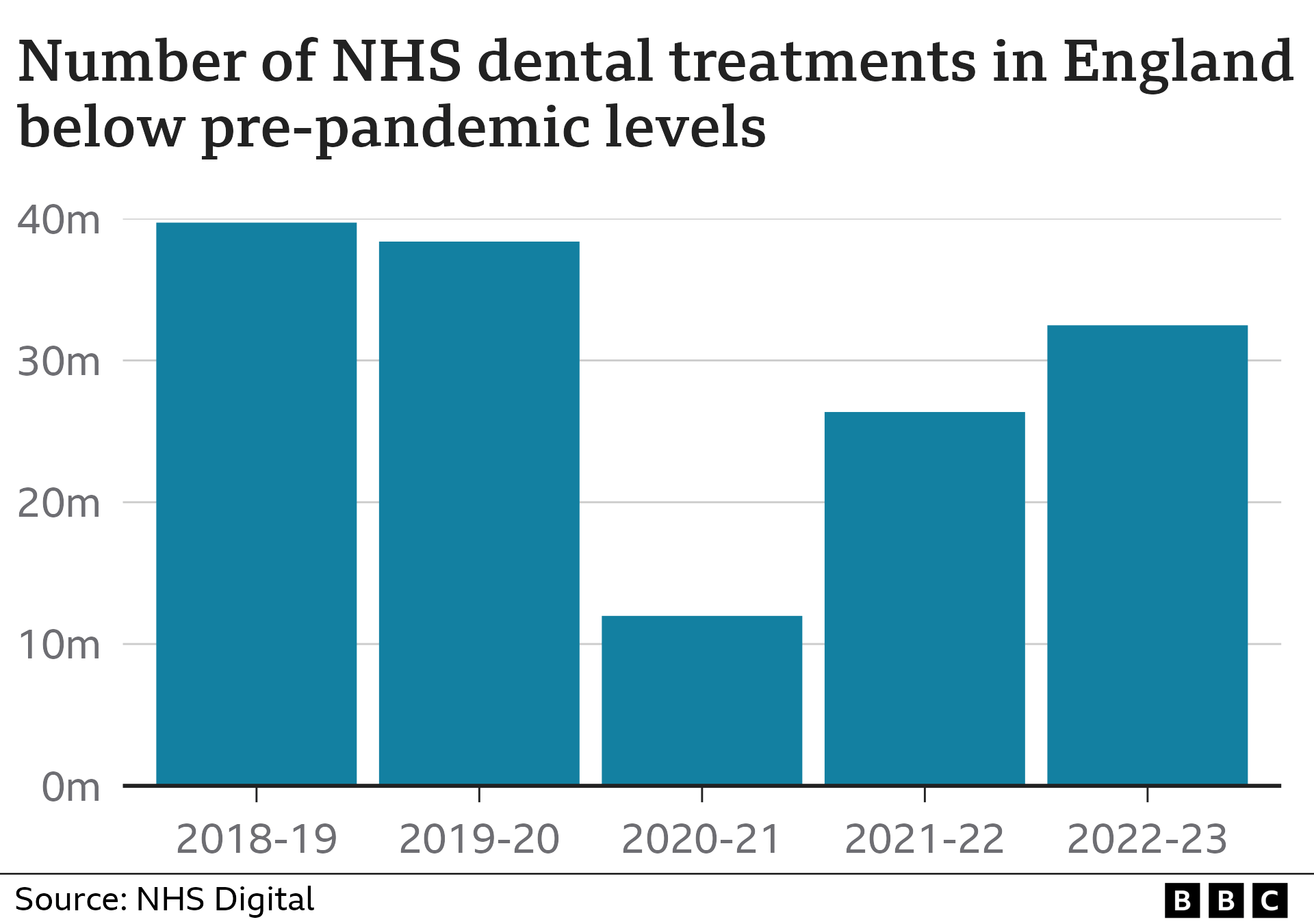
Labour's shadow health secretary Wes Streeting told BBC Breakfast the government's proposals are "temporary measures they hope can buy them time until after the election".
"Not all of the problems in the NHS are about money, but with dentistry a lot of it is about money. Last year there was a £400m underspend in the NHS dentistry budget. Can you believe it? With people struggling to get access to dentists and contract reform so desperately needed."
The party has previously announced its own policy of supervised teeth-brushing for three-to-five-year-olds and Mr Streeting said it would reform the contract system for dentists immediately if it wins an election.
Dental surgeon Dr Sami Butt told Radio 4's Today programme the payment would be an insufficient measure without wider reforms, describing it as a "temporary filling - and not a very good one".
Louise Ansari, head of Healthwatch England, said there were "major access issues", which the rising cost of living had also impacted.
She said the plan was a "good start", but in the long term more radical solutions were needed.
Last year 32.5 million treatments were carried out - but that is still fewer than before the pandemic.
Dentist training posts are in the process of being increased, but that will take some years to start making a significant difference.
The state of NHS dentistry was recently thrust into the spotlight when hundreds of people queued outside a new dental practice in Bristol to register as NHS patients.
And a BBC investigation in 2022 found nine in 10 NHS dental practices across the UK were not accepting new adult patients for treatment on the NHS.
It found the lack of NHS appointments had led people to drive hundreds of miles in search of treatment, pull out their own teeth without anaesthesia, or resort to making their own improvised dentures.
Related topics
- Published8 November 2023
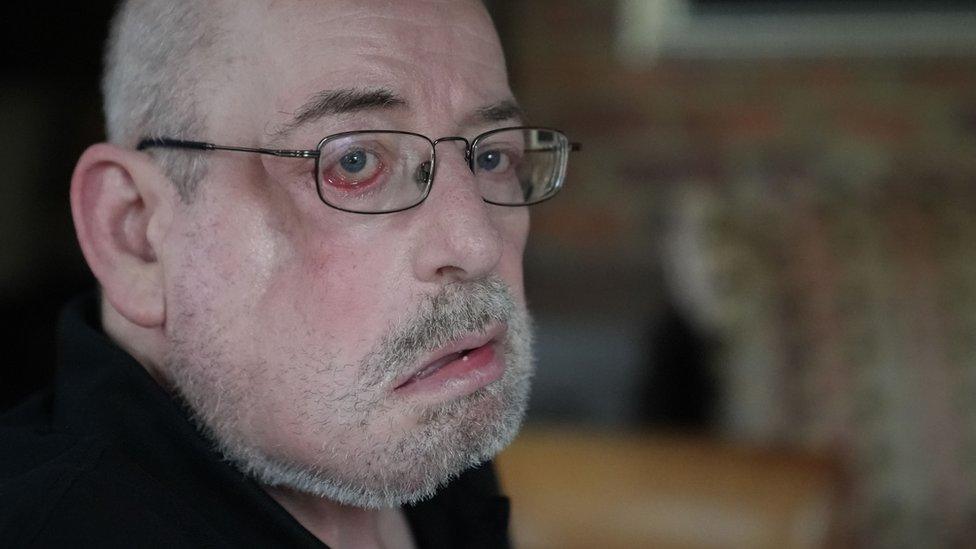
- Published14 July 2023
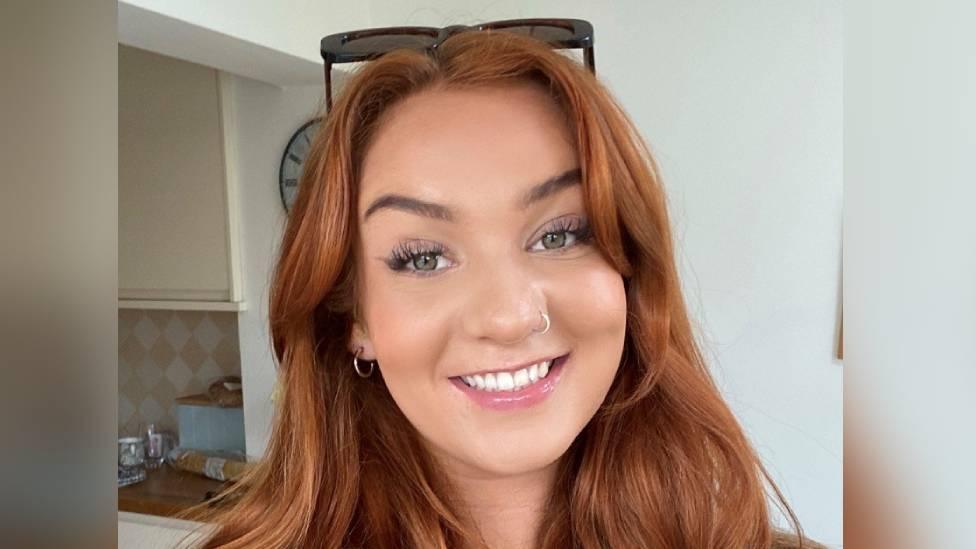
- Published8 August 2022
